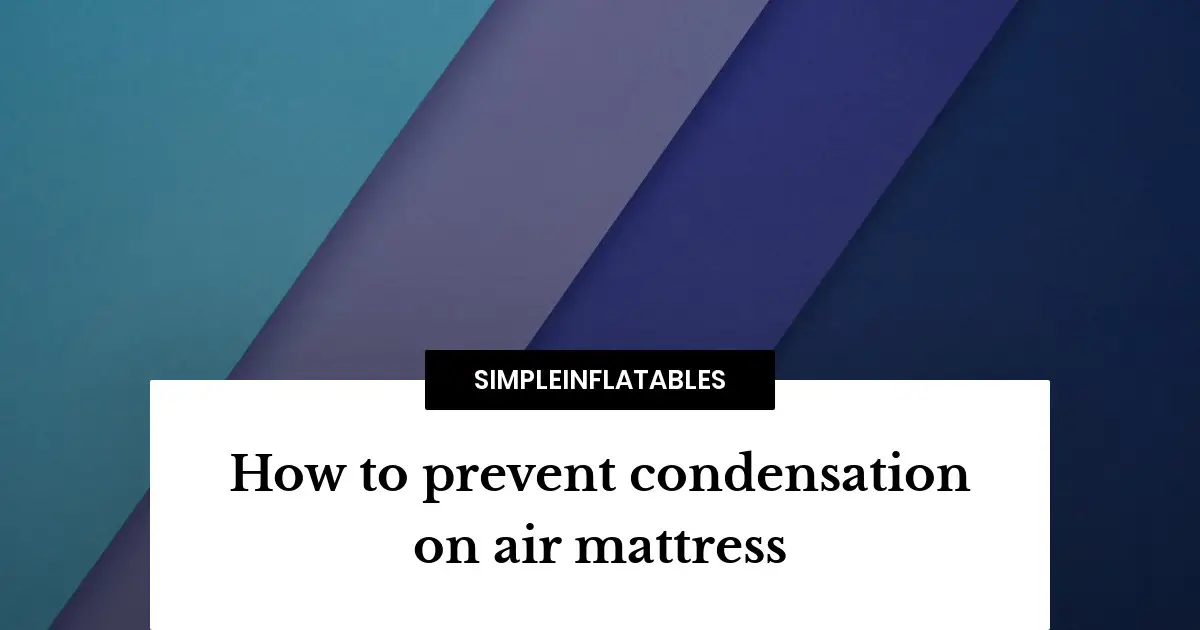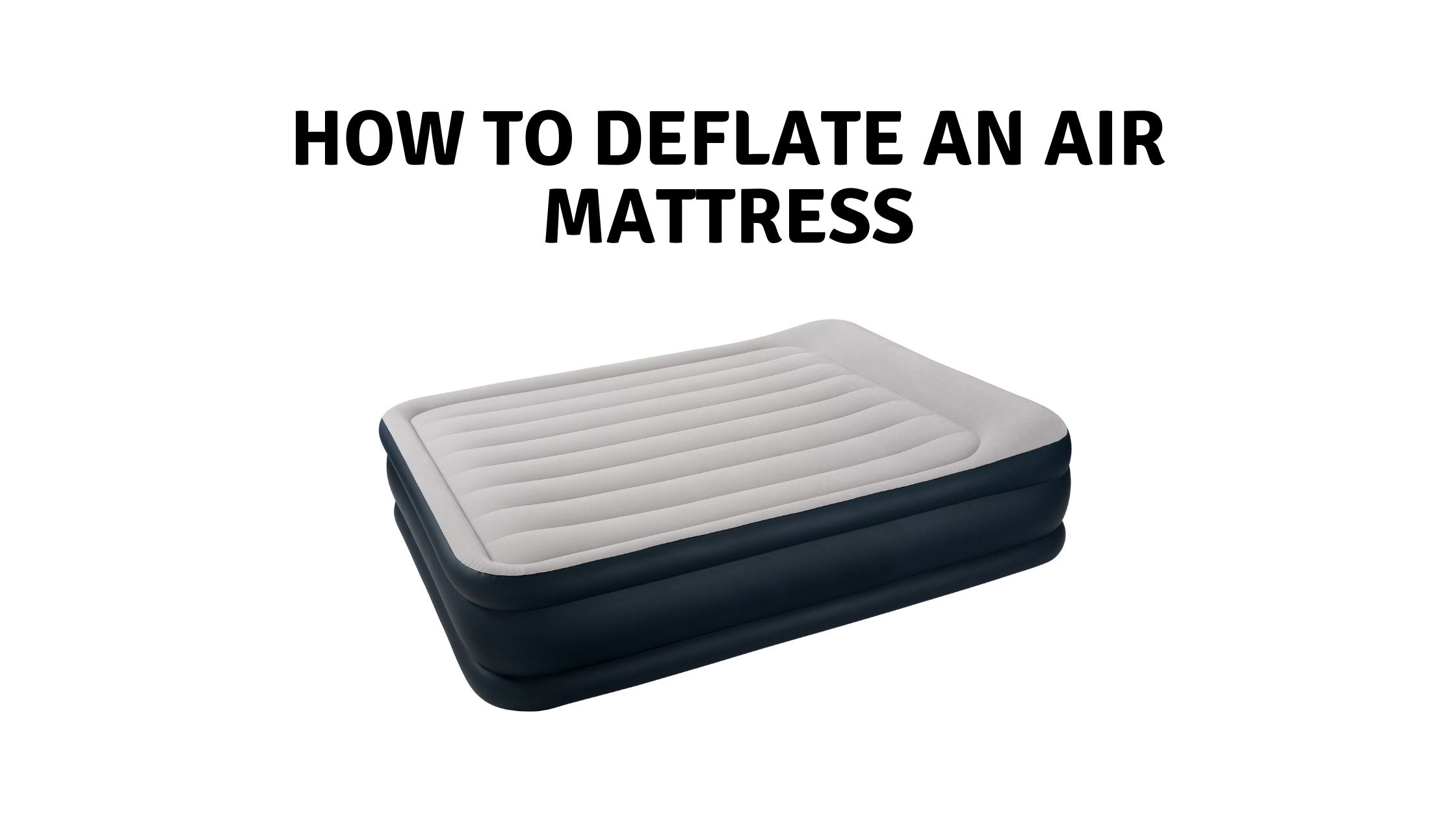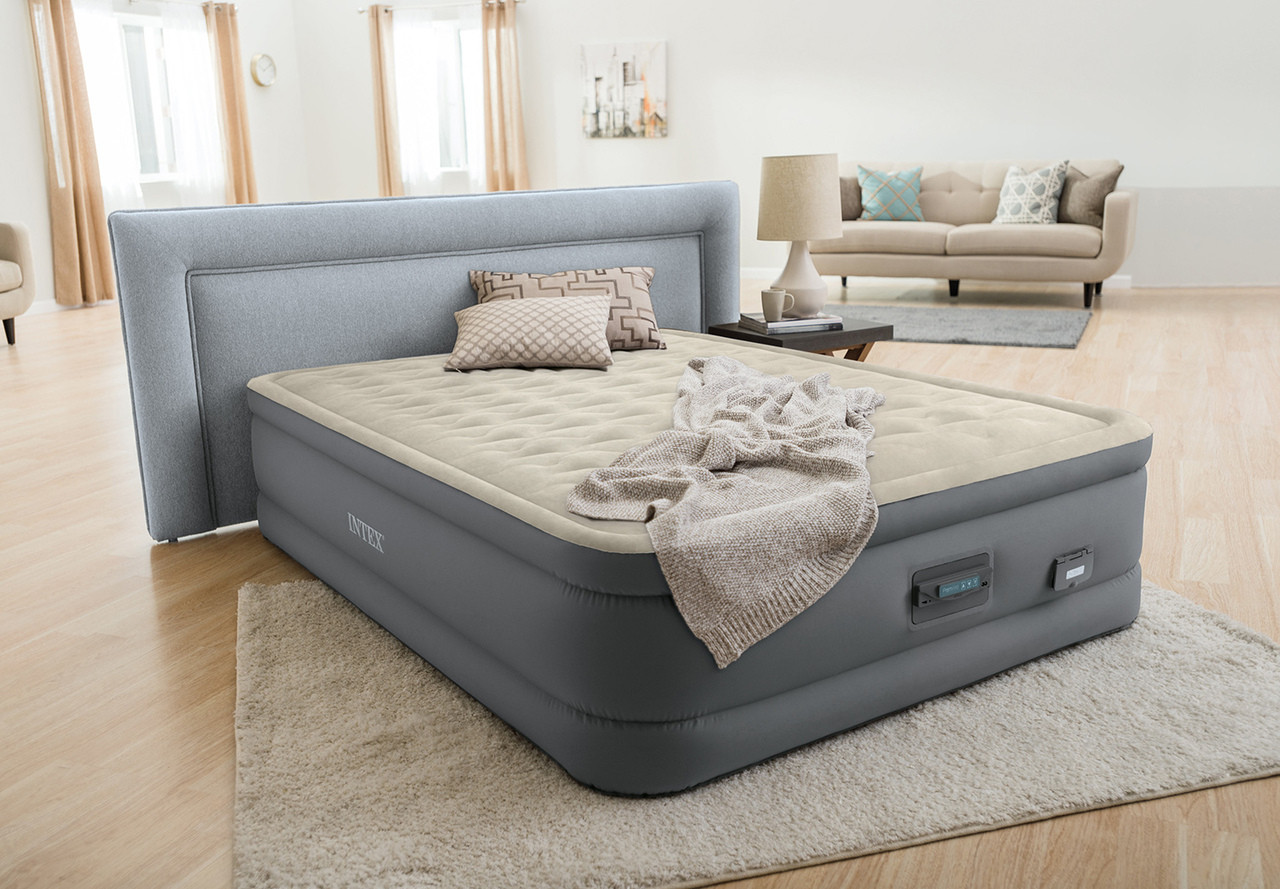If your air mattress feels wet, condensation is the #1 culprit. Warm, humid air inside or around the mattress meets the cooler vinyl surface, causing moisture to collect—just like water droplets on a cold drink. Sweat, slow leaks, and ground dampness can compound the problem. Left unchecked, moisture degrades vinyl welds, breeds odours, and sets the stage for mould. Identifying the exact cause now saves you sleepless, soggy nights and extends the life of your inflatable investment.
Most Common Causes of a “Wet” Air Mattress
Room-to-Mattress Condensation
Physics in play: Warm air holds more water vapour than cold. When it encounters a cooler surface (your vinyl bed), the vapour condenses into liquid.
Typical scenarios: Basement guest rooms, tents on cold ground, winter sleepovers in unheated spaces.
Body Sweat & Breath Moisture
Humans release ~½ litre of water overnight through sweat and respiration.
Vinyl lacks breathability, trapping moisture beneath fitted sheets.
Pin-Hole Punctures & Slow Leaks
A tiny leak allows cool external air to circulate, dropping internal surface temp and amping up condensation.
Leaky valves can also spray a fine mist—not enough to notice until the cover feels damp.
High Ambient Humidity or Ground Damp
Relative humidity over 60 % dramatically increases condensation risk.
Camping on dew-laden grass, concrete floors, or humid coastal climates compounds the effect.
Vinyl Off-Gassing & “Cold-Touch” Effect
New air beds sometimes feel clammy due to plasticiser off-gassing, which lowers surface tension and makes minor condensation spread thin, so the bed feels wetter than it actually is.
How to Diagnose the True Culprit (Step-by-Step)
Visual Check in Daylight
Strip bedding; look for water beads versus uniform dampness—beads = condensation, patchy spots = leaks.
Tissue Test Around Seams & Valve
Press dry tissue; if it darkens near a seam without visible beads, suspect a slow leak.
Humidity & Temperature Reading
Use a cheap hygrometer/thermometer. If RH > 60 % and mattress surface temp is ≥ 4 °C below room temp, condensation is inevitable.
Inflation Stability Overnight
Mark air level; significant deflation + dampness = leak-driven cooling.
Ground Sheet Test (Campers)
Place a foam pad under half the mattress; next morning compare wetness. If the foam side is significantly drier, ground chill is the issue.
Nine Proven Fixes to Keep Your Air Bed Dry
1. Elevate & Insulate Underneath
Indoors: Use a cot frame or slatted bed base to create airflow.
Outdoors: Slide a closed-cell foam pad or reflective tarp beneath to block ground moisture and cold.
2. Add a Moisture-Wicking Topper
A quilted cotton or bamboo mattress pad pulls sweat away from skin and allows air circulation between your body and vinyl.
For chronic condensation, upgrade to a thin memory-foam topper (still portable but much more breathable).
3. Control Room Humidity
Run a dehumidifier to keep RH between 40–50 %.
In summer, set AC to maintain ≤ 22 °C (72 °F); cooler air holds less moisture.
4. Patch Leaks the Right Way
Locate using soapy-water spray; watch for bubbles.
Dry, clean, apply PVC patch—keep pressure on for 4 h.
Re-inflate and re-test after 12 h before sleeping.
5. Use Breath-Easy Bedding Materials
Skip plastic-backed protectors unless topped with terry cloth.
Lightweight microfibre or percale sheets breathe better than heavyweight flannel.
6. Night-Time Vent Strategies for Campers
Crack tent fly and open mesh panels; aim for cross-ventilation to expel warm, moist breath.
Position air mattress away from tent walls where condensation drips can transfer.
7. Store Correctly Between Uses
Fully deflate, wipe with mild vinegar solution, dry out of direct sun.
Store loosely rolled in a breathable cotton bag, not airtight plastic.
8. Rotate or Flip Regularly
Every two nights, rotate head–foot or flip (if double-sided) to distribute moisture load and minimise cold spots.
9. Invest in an Air Mattress with Built-In Insulation
Premium models add internal fibre beams or a velvet top layer to reduce thermal transfer.
Look for R-value ratings (camping pads) of ≥ 2.0 for three-season comfort.
Is It Mould? Spotting and Treating Fungal Growth
Red flags: Musty smell, black or green specks, fuzzy patches on seams.
Treatment:
Inflate fully and wipe with 1:1 white vinegar–water mixture.
Scrub crevices using a soft toothbrush dipped in mild detergent.
Rinse with clean water; towel-dry then air-dry in shade (UV can degrade vinyl).
Apply a mould-resistant spray once dry; ensure complete ventilation before packing away.
If mould has penetrated the vinyl layers or the odour persists, replacing the mattress is safer and often cheaper than medical bills from allergies.
6. Maintenance Schedule & Troubleshooting Cheat-Sheet
| Frequency | Task | Why It Matters |
|---|---|---|
| Before first use | Wipe with mild soap & vinegar | Removes plasticiser film that attracts moisture |
| Each setup | Inflate to 90 % capacity, top off after 30 min | Allows vinyl to stretch evenly, reducing cold spots |
| Every night | Inspect valve & seams for hissing | Early leak detection prevents wet surprises |
| Weekly (long stays) | Vacuum or lint-roll topper | Dust + moisture = mould buffet |
| Monthly | Fully deflate, air-dry 2 h, reinflate | Releases trapped moisture and resets tension |
Frequently Asked Questions
Does sleeping on an air mattress make you sweat more?
Yes. Vinyl is non-porous, so it traps body heat and perspiration against your skin. Add a breathable topper and moisture-wicking sheets to reduce sweat build-up.
Can a temperature drop overnight cause a wet air bed?
Absolutely. When ambient temperature falls, the vinyl surface cools, turning moisture in the air into condensation on the mattress.
Will a mattress protector stop condensation?
Only if it’s breathable. Waterproof protectors with plastic backing trap moisture and can actually make dampness worse. Choose terry-cloth or breathable-membrane versions instead.
Is dampness a sign my air mattress is leaking?
Not always. Slow leaks cool the vinyl and encourage condensation, but wetness alone doesn’t confirm a leak. Perform a soap-bubble test around seams and the valve to be sure.
How can I dry an air mattress quickly?
Blot surface moisture with towels, then run a fan or a hair dryer on the cool setting across the area. Avoid high heat, which can warp or melt vinyl.
Final Thoughts & Next Steps
A wet air mattress is more than a minor annoyance—it’s a sign of condensation imbalance, leaks, or environmental humidity issues. By applying the fixes above—elevate, insulate, ventilate, and patch—you’ll reclaim dry, cosy sleep and prolong your inflatable bed’s lifespan.
Ready to stay dry tonight? Download our free “Air Bed Moisture-Prevention Checklist” and get 10 % off a premium cotton-bamboo mattress topper in our store. Sleep tight—minus the damp!



